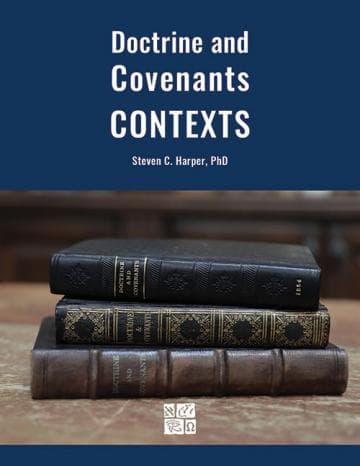Book
136 Chapters

While he was in Missouri in spring 1832, Joseph “received a welcome known only by brethren and sisters united as one in the same faith.”[1] These Saints, including widows Phebe Peck and Anna Rogers, were acting on the law of consecration as best they could. The law specified that “individuals” should consecrate surplus to the storehouse maintained by the bishop so that “every man who has need may be amply supplied and receive according to his wants,” but it was not clear that women could be supplied as well (D&C 42:33). Section 83 is an “addition to the laws” already given.[2] It clarifies that the storehouse is for widows, orphans, and children whose parents cannot provide for them. “They have claim upon the church, or in other words upon the Lord’s storehouse, if their parents have not wherewith to give them inheritances” (D&C 83:5). The storehouse, in turn, is to be stocked by the consecrated offerings of the Latter-day Saints. “Widows and orphans shall be provided for, as also the poor” (v. 6).
Generally speaking, Latter-day Saints past and present have practiced these principles beautifully. When he dedicated the new Bishops’ Central Storehouse in 2012, then-President Dieter F. Uchtdorf recalled his boyhood in post-World War II Germany, when food, clothing, and bedding was sent from the Church’s storehouses to meet the needs of his family and others.[3]
[1] “History, 1838–1856, volume A-1 [23 December 1805–30 August 1834],” p. 213, The Joseph Smith Papers, accessed July 7, 2020.
[2] “Revelation, 30 April 1832 [D&C 83],” p. [1], The Joseph Smith Papers, accessed July 7, 2020.
[3] Heather Whittle Wrigley, “President Uchtdorf Dedicates New Bishops’ Central Storehouse,” Church News (January 26, 2012).
Book
136 Chapters
Items in the BMC Archive are made publicly available for non-commercial, private use. Inclusion within the BMC Archive does not imply endorsement. Items do not represent the official views of The Church of Jesus Christ of Latter-day Saints or of Book of Mormon Central.